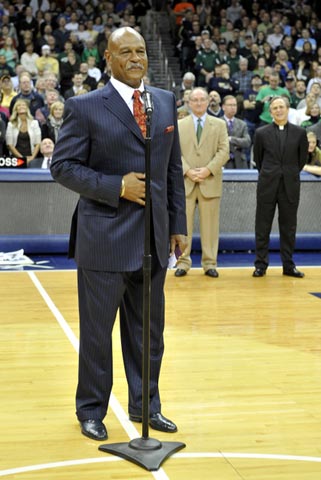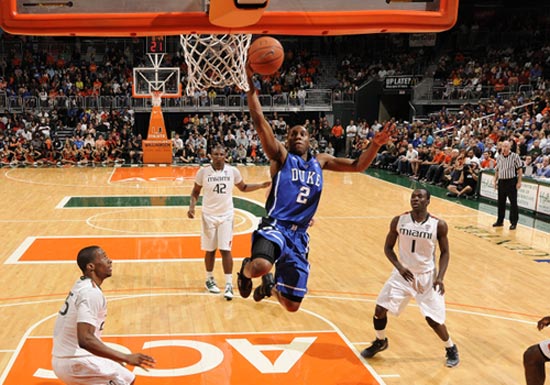History of March Madness
The NCAA Tournament is one of the most beloved traditions in the sports world. The tournament is a single elimination tournament that has spanned many decades since its inception. The tournament was first played in 1939, where only 8 teams participated in the even. These eight teams were split into two divisions (East and West) with four teams in each. The teams were Brown, Wake Forest, Ohio State, and Villanova from the East Division and Oklahoma, Oregon, Utah State, and Texas from the West. Oregon was the first winner of the NCAA Tournament when they defeated Ohio State 46-33.
The NCAA Tournament has expanded exponentially since those days. In 1951, the field of teams was expanded from 8 to 16 teams. This was followed shortly after by another expansion where the tournament could include any number of teams from 22 to 25 in 1953. Prior to 1975, only one team per conference was allowed in the tournament; however, when the tournament expanded again to an even 32 teams, this rule was dropped. 32 teams only lasted until 1979, when the tournament included 40 teams.
This setup proved unwieldy however, and in 1980 the tournament expanded again to include 48 teams. 1983 was the advent of the “play-in” game, as the tournament expanded to 52 teams and incorporated four such games. 1984 Tried to tweak this by introducing one more play-in game with 53 teams total, but this also proved to be difficult to follow, so in 1985, the field finally expanded to 64 teams.
The tournament would stay at 64 until 2001, when the people running it decided to add one more team and bring back the play-in game. This is how the tournament has been organized up until this point, but there is another change looming for this season’s tournament. This year the NCAA Tournament will expand to 68 teams for the first time, bringing back a 4 play-in games format to the tournament.

The main attraction of the NCAA Tournament is the Final Four. These are the top 4 teams that survive all of the earlier rounds and make it into the final four slots in the tournament, hence the term "Final Four". The past Final Fours and the overall winners from each tournament are shown here with the National Champions in bold:
1996: Kentucky, Syracuse, Massachusetts, Mississippi State
1997: Arizona, Kentucky, Minnesota, North Carolina
1998: Kentucky, Utah, North Carolina, Stanford
1999: Connecticut, Duke, Michigan State, Ohio State
2000: Michigan State, Florida, North Carolina, Wisconsin
2001: Duke, Arizona, Michigan State, Maryland
2002: Maryland, Indiana, Kansas, Oklahoma
2003: Syracuse, Kansas, Texas, Marquette
2004: Connecticut, Georgia Tech, Duke, Oklahoma State
2005: North Carolina, Illinois, Louisville, Michigan State
2006: Florida, UCLA, LSU, George Mason
2007: Florida, Ohio State, UCLA, Georgetown
2008: Kansas, Memphis, UCLA, North Carolina (First time all number 1 Seeds made it to the Final Four since the Tournament added 64 teams)
2009: North Carolina, Michigan State, Connecticut, Villanova
2010: Duke, Butler, Michigan State, West Virginia

Other 2011 March Madness Articles:
- 2011 March Madness Tournament Schedule
- 2011 NCAA Basketball Tournament Preview
- 2011 NCAA Tournament Predictions
- March Madness Trivia
What do you think?
We'd love to hear your comments and/or opinions. If you submit them here, other visitors can read them, rate them and comment on them. An e-mail address is not required.
From History of March Madness to NCAA Basketball Blog | Sports Blog | NFL Football Blog | NCAA Football Blog | NFL Football Archives | College Football Archives | MLB Baseball Blog | College Baseball Blog | MLB Baseball Archives | NBA Basketball Blog | NBA Basketball Archives | NCAA Basketball Archives | Fantasy Football | Fantasy Basketball | Fantasy Baseball | Soccer Archives | Olympics Archives | Stupid Athletes Archives | Other Archives | Football Forum | Basketball Forum | Baseball Forum | NFL Football Store | NBA Basketball Store | MLB Baseball Store | NCAA Football Store | NCAA Basketball Store | NCAA Baseball Store | Fatheads | NFL Football Tickets | NBA Basketball Tickets | MLB Baseball Tickets | NCAA Football Tickets | NCAA Basketball Tickets | NCAA Baseball Tickets |
|
Hot Stores! |
 |
Hot Tickets! |
Subscribe To Blog
|
[?] Subscribe To This Site 




 |
Like This Page
Comments?
We are always very interested in reader comments about the site -- especially ideas about how to improve it.
New! Facebook Comments
Leave a comment about this article in the box below and share it with your Facebook friends.